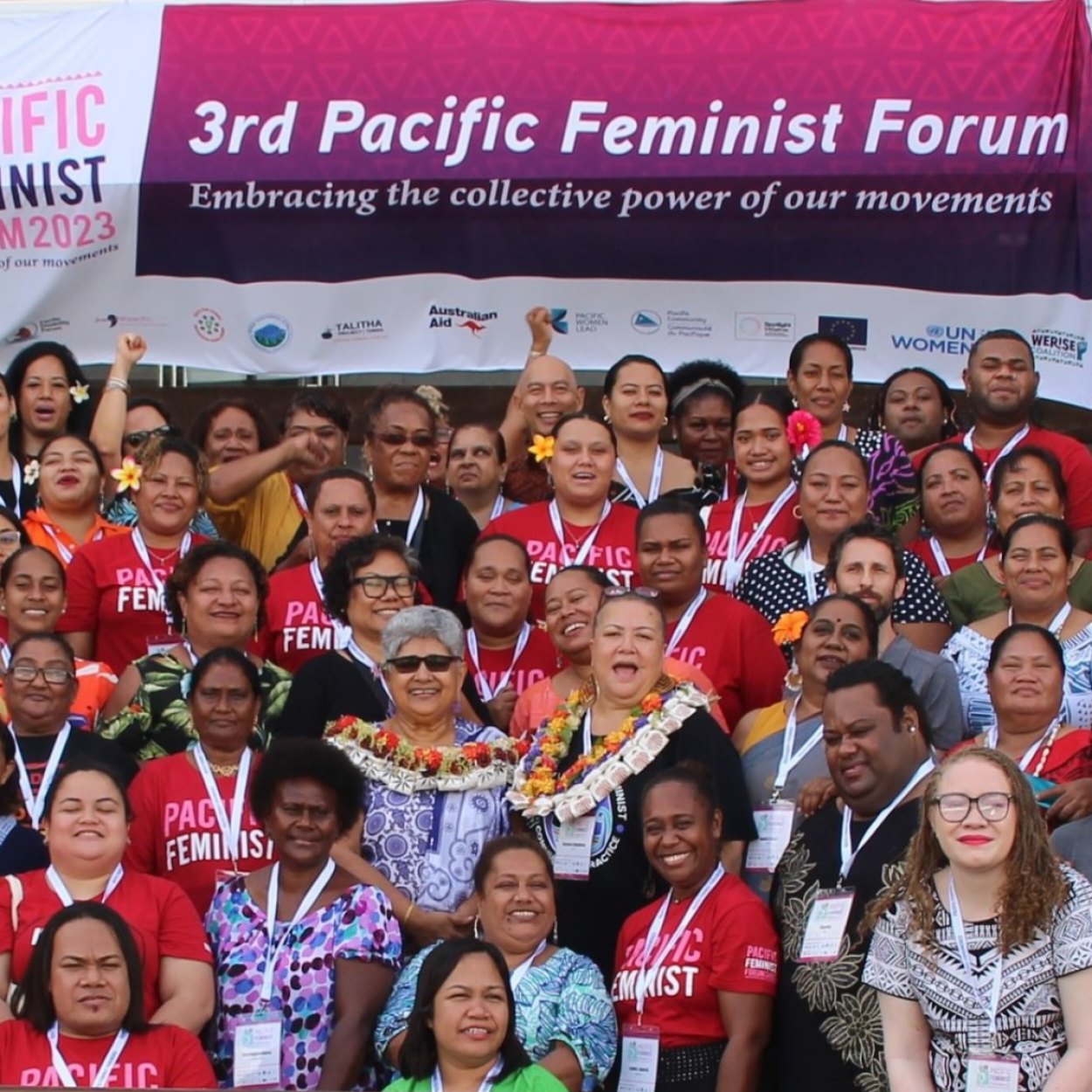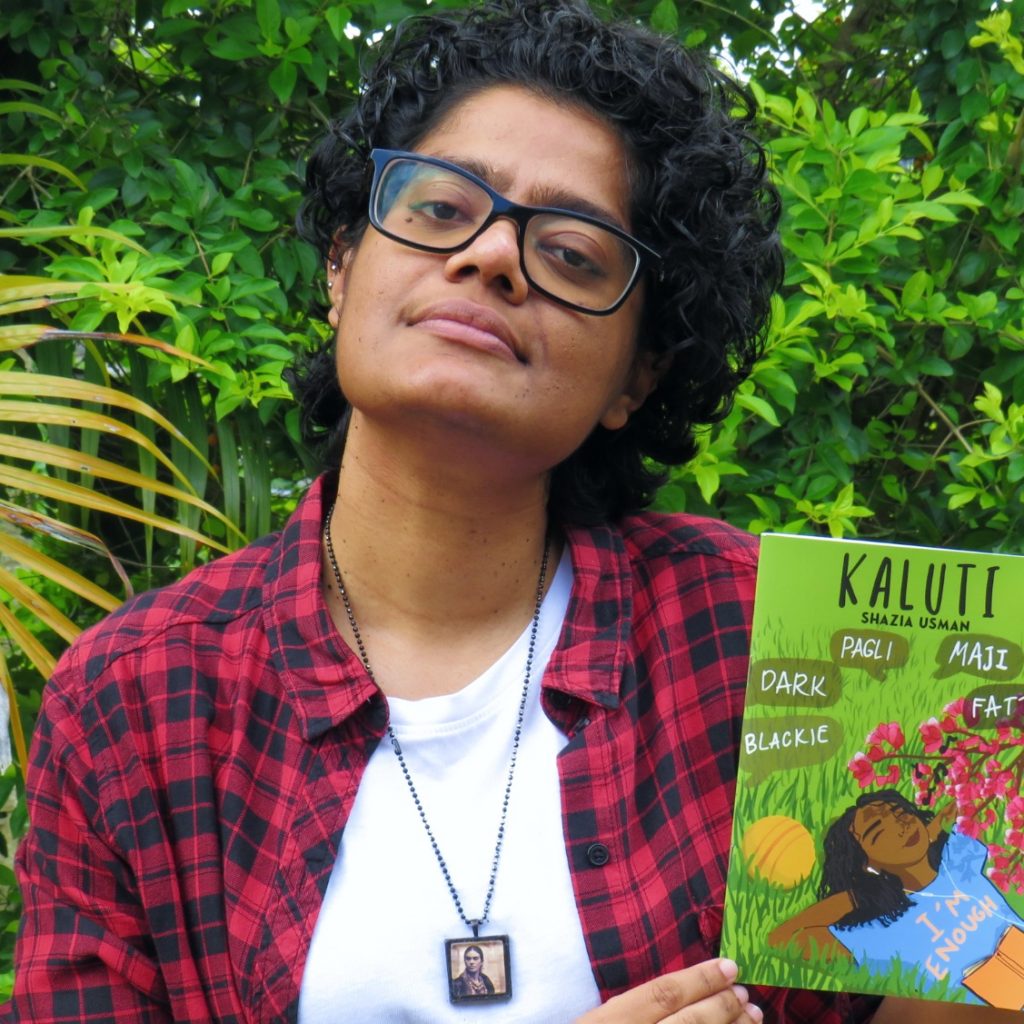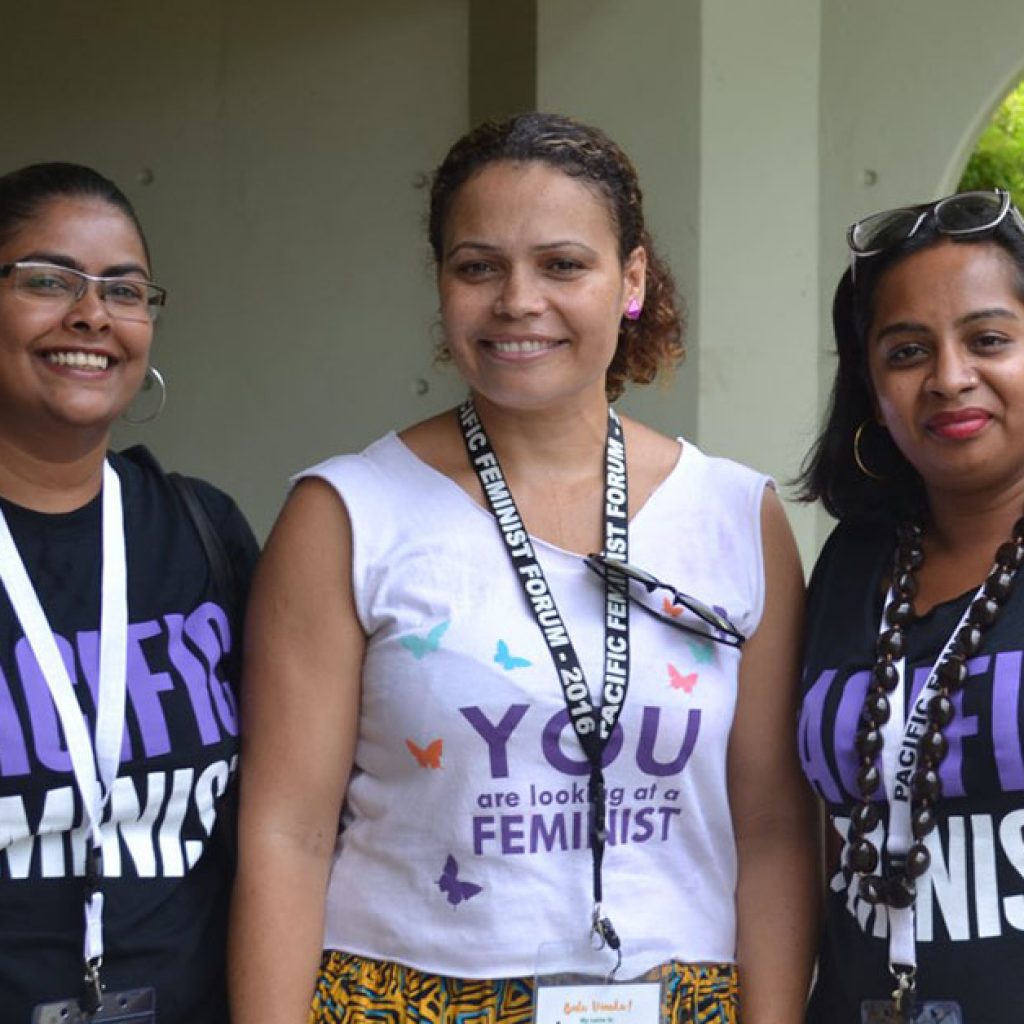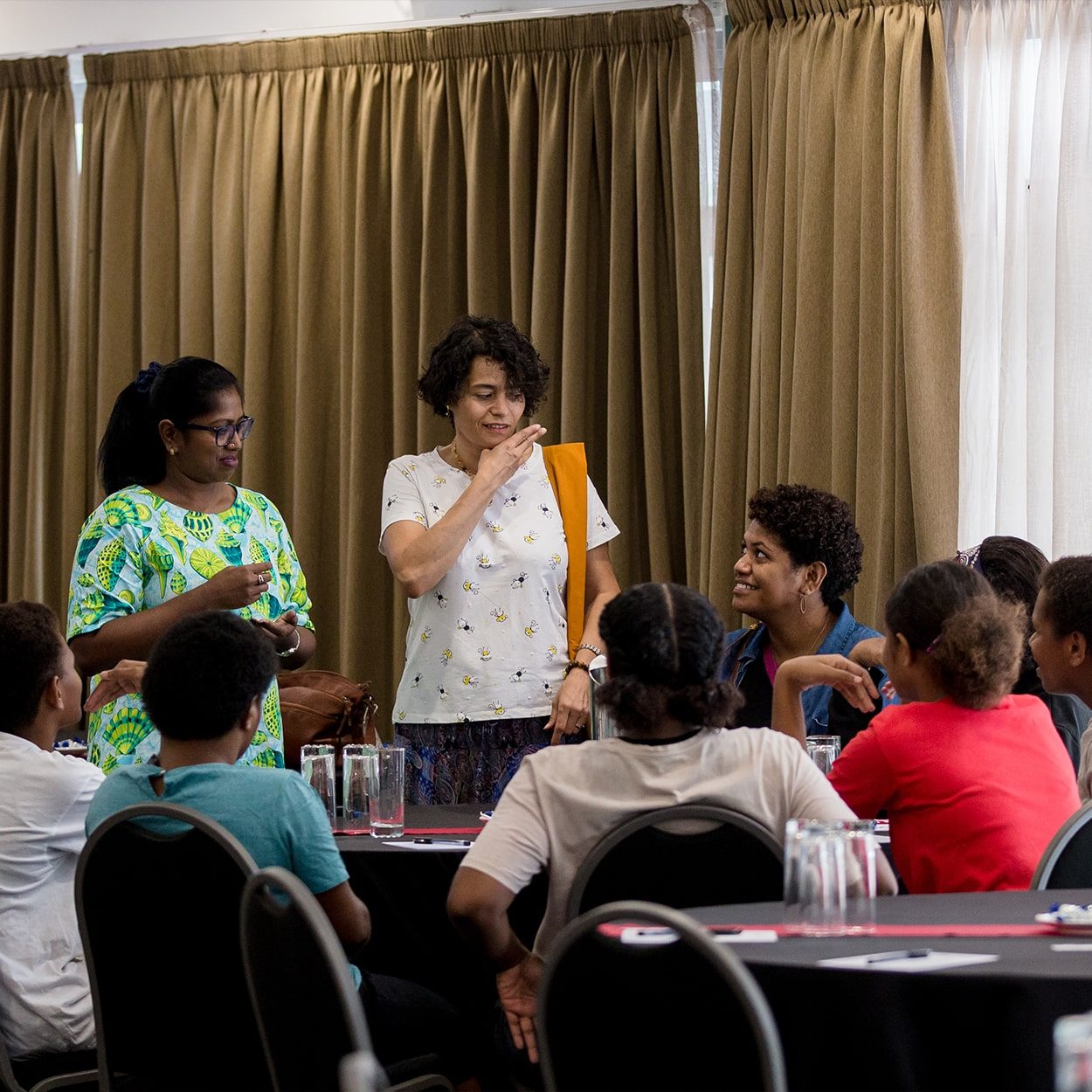
Fiji’s first feminist leadership program for Deaf girls
Sign language – it’s a core part of Deaf culture. One that supports people in the Deaf community to learn, work, socialise and build connections with those around them. Put simply, sign language makes it possible for them to access and enjoy their rights.
For a ground-breaking, girl-led, feminist leadership program in Fiji, learning and incorporating sign language into their work has been key to making their work accessible to Deaf girls. In doing so, the program has been empowering them to learn about their rights, advocate for themselves and build connections with other girls in their community – all while providing an opportunity for hearing girls to learn about disability and deaf culture.
To mark International Sign Language Day, we’re sharing the story of how Fiji Women’s Rights Movement’s GIRLS Programme has changed and grown to accomplish this.
GIRLS Persist: Fiji’s first feminist leadership program to include Deaf girls
FWRM’s GIRLS Programme has been running for a decade, enabling girls between 10-17 years of age to feel confident knowing and advocating for their rights within their families, schools, friendship groups and communities. Through a range of activities like sports, theatre and creative writing, the program has been teaching girls about issues like gender equality, human rights, feminism and sexual and reproductive health rights. At its core, GIRLS is about building the individual agency of Fijian girls and, in doing so, improve their safety and security.
In 2019, the program expanded to include 10 Deaf girls which formed GIRLS Persist – the first feminist Deaf girls’ leadership program in Fiji.
“If we say we are for all women and girls, then we have to be for all women and girls,” Nalini Singh, Executive Director of FWRM, stated as she shared with us the journey the GIRLS programme took to get to this place.
In partnership with the Gospel School for the Deaf (GSD), FWRM has worked to make their GIRLS program accessible to Deaf girls. This has included recruiting a specialised Deaf consultant to adapt the GIRLS Program methodology, developing unique session plans for their new cohort and running capacity-building workshops for FWRM staff to learn about Deaf culture and language.
This has also meant, in some cases, expanding Fijian Sign Language (FSL) by developing new signs for words like ‘feminism’ and ‘intersectionality’ – concepts that are core to the GIRLS program but, until now, had been missing from FSL.
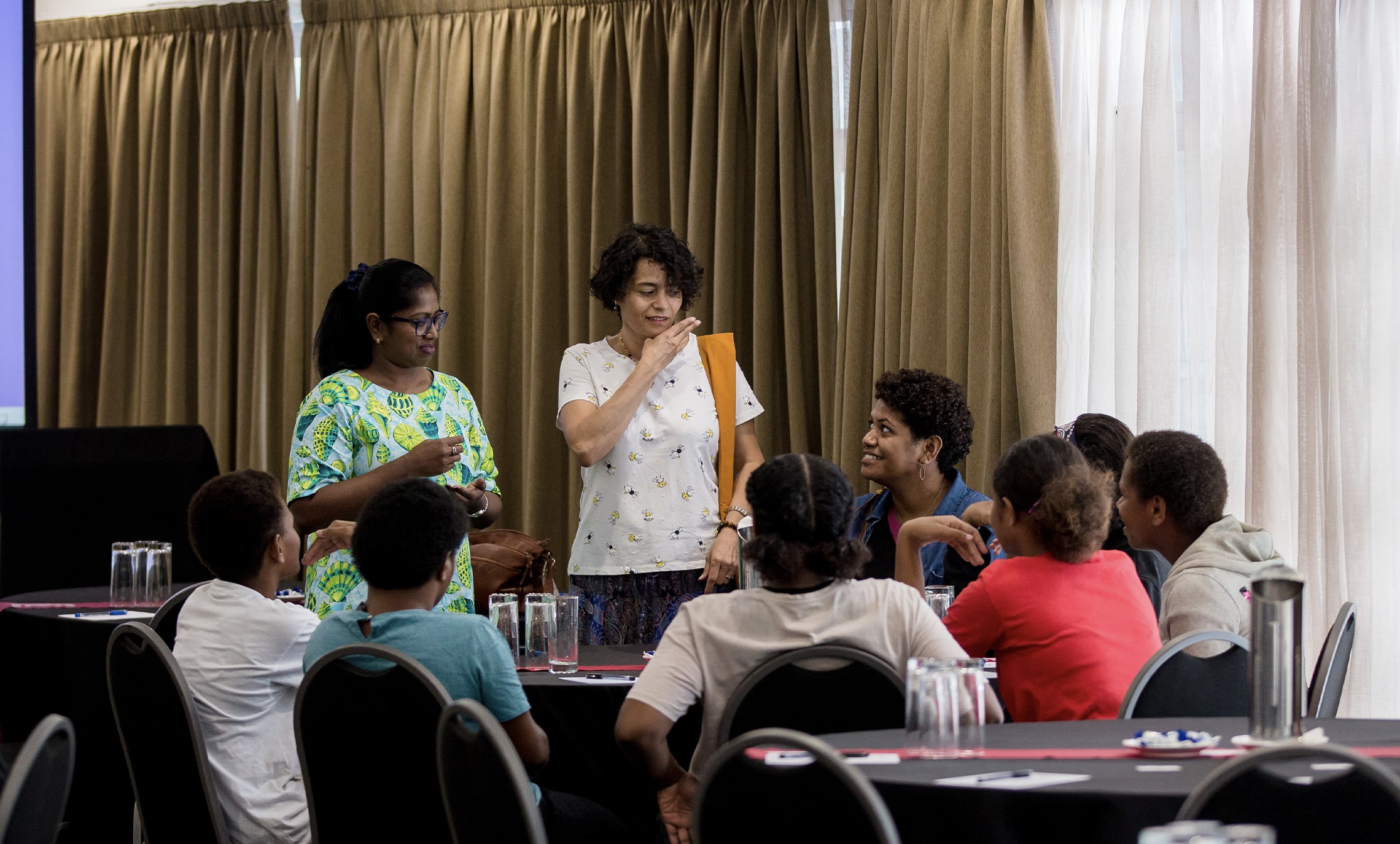
Mainstreaming disability inclusion in the fight for gender equality
Through this work, FWRM and GSD have been able to create safe and inclusive spaces for Deaf girls to fully participate in the GIRLS program. Participants have felt empowered to share their experiences and challenges, particularly around issues like gender-based violence.
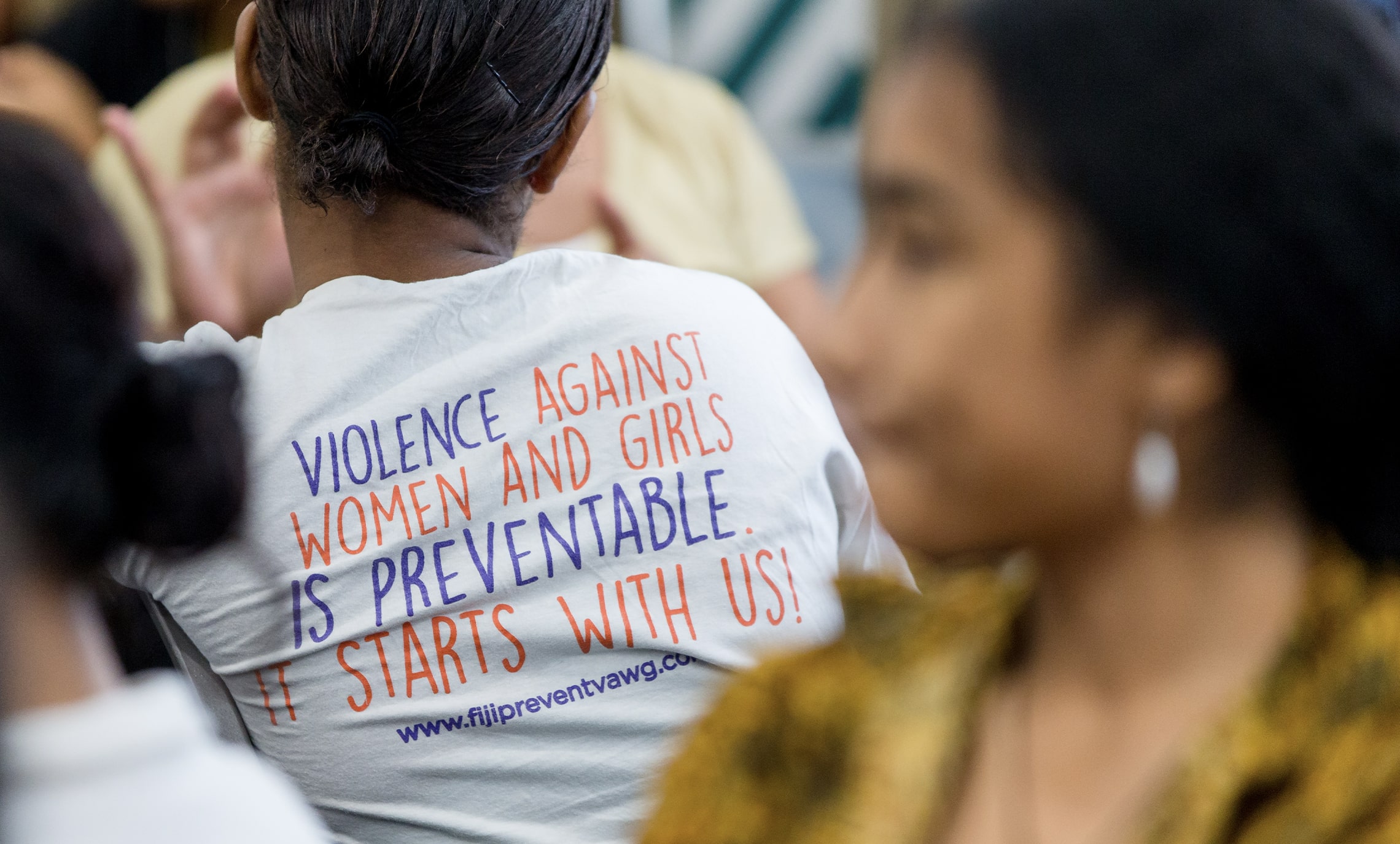
As part of a consultation in 2022 on Fiji’s Draft National Action Plan to Eliminate Violence against Women and Girls, members of the GIRLS Persist cohort had the opportunity to advocate for their particular safety needs. They used this space to call for safer public transport, more effective and inclusive education programs and a Deaf friendly toll-free National Helpline to access support services. This point was further highlight when a hearing and a Deaf member of the GIRLS program were invited to speak at the 51st Pacific Islands Forum Leaders Meeting on the issue of gender-based violence. As the only adolescent girls invited, they used this space to advocate for a more holistic approach to addressing the needs of diverse girls in the region.
“For me as a deaf girl, I would never have learnt how my everyday life is impacted by culture or religion or what I read. It is through this program I am able to learn this. I feel, the more girls like me get this information, the more powerful we are, because information is power.” – GIRLS Persist member
Hearing girls that are part of the broader GIRLS Programme have also had the opportunity to learn sign language and, through this, have been given the opportunity to learn more about Deaf culture – from being given their own name signs to learning more about the particularities of life as a Deaf girl in Fiji. The opportunity to communicate in this new way has enabled the girls to deepen their understanding of each and foster a relationship built on meaningful engagement and sharing.
In this way, the program is breaking down barriers between Deaf and hearing girls, allowing them to embrace their similarities and differences as they fight alongside each other for gender equality.
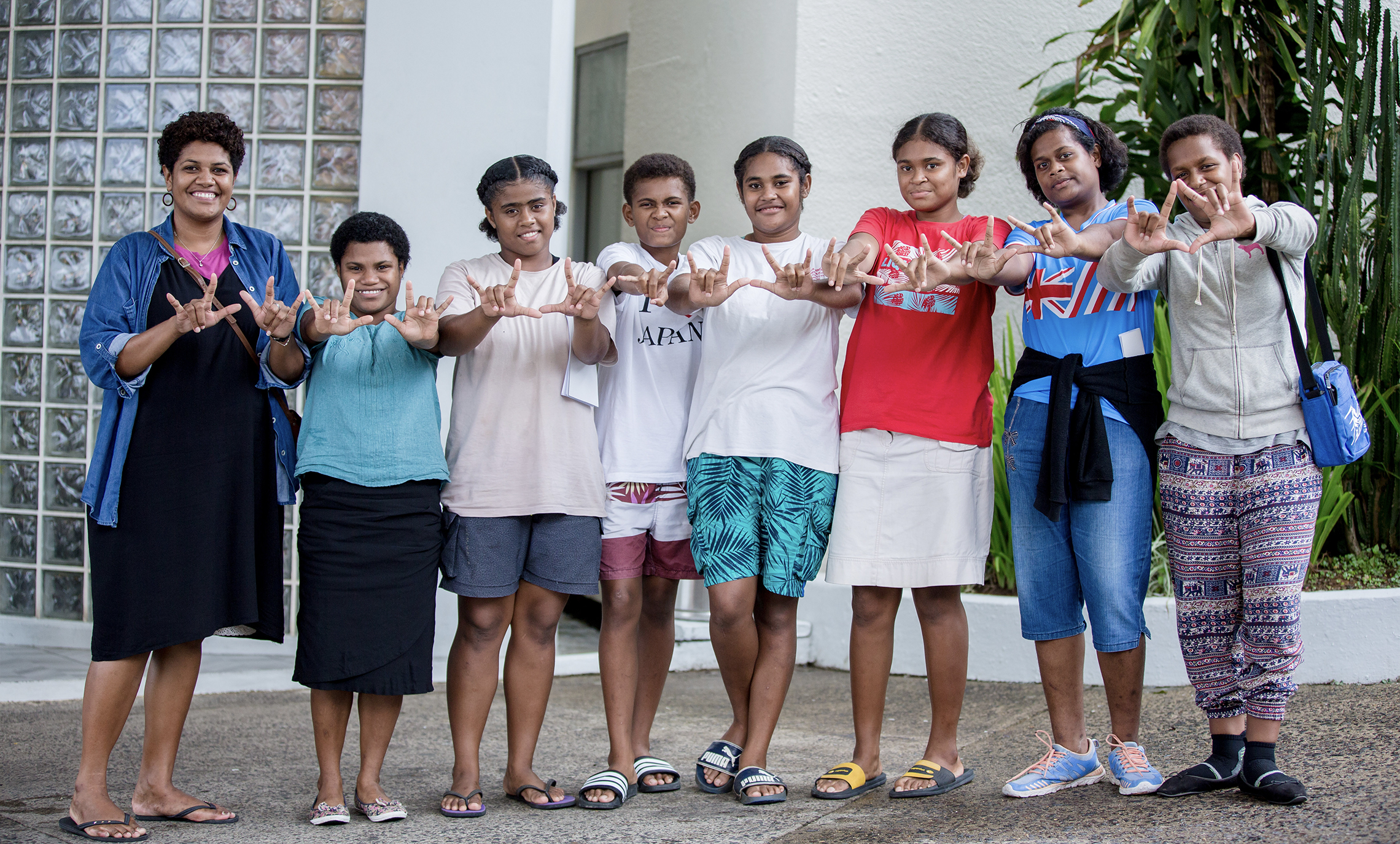
The GIRLS Program is delivered in partnership with the Australian Government through the Australian NGO Cooperation Program (ANCP).


